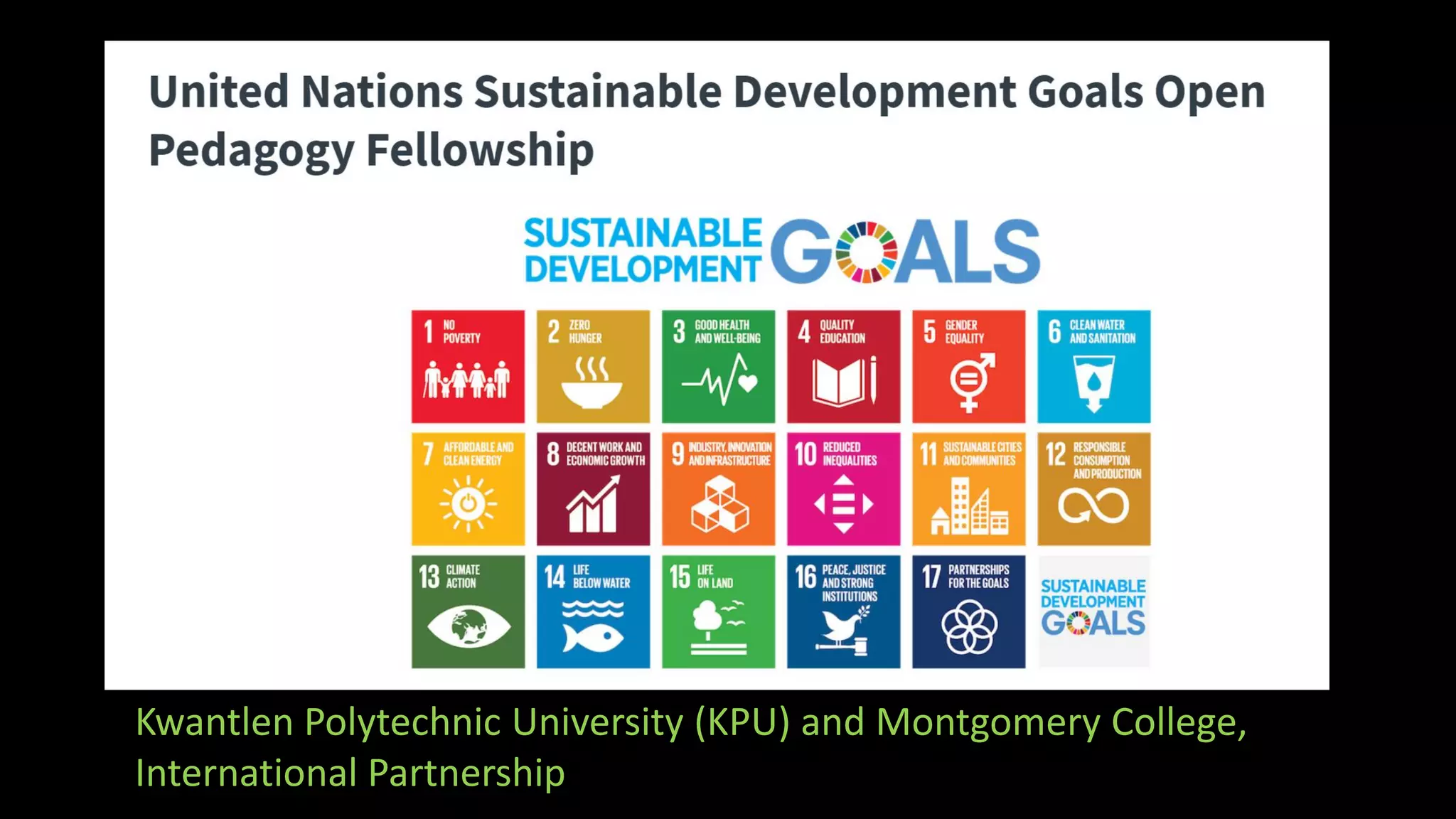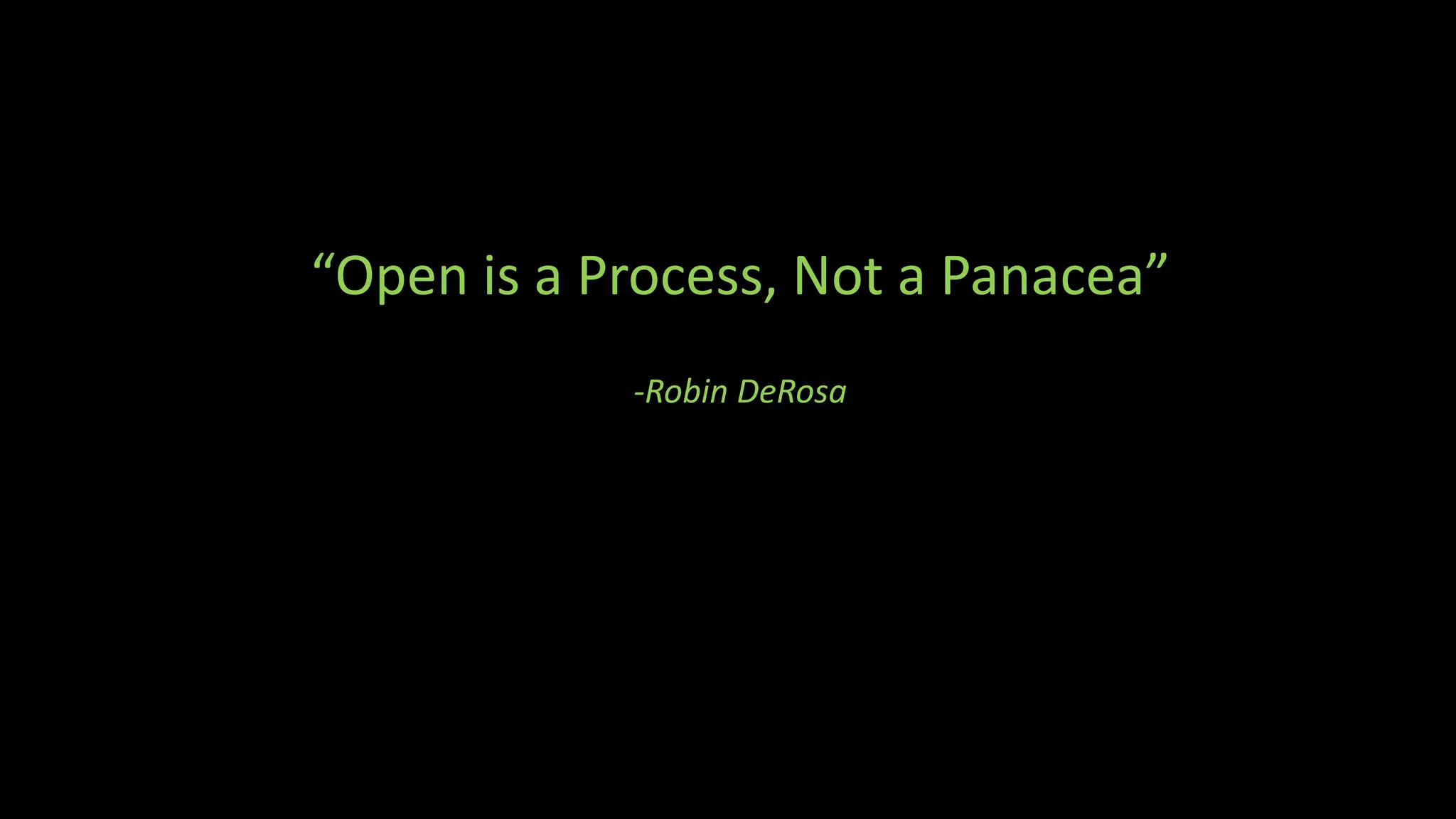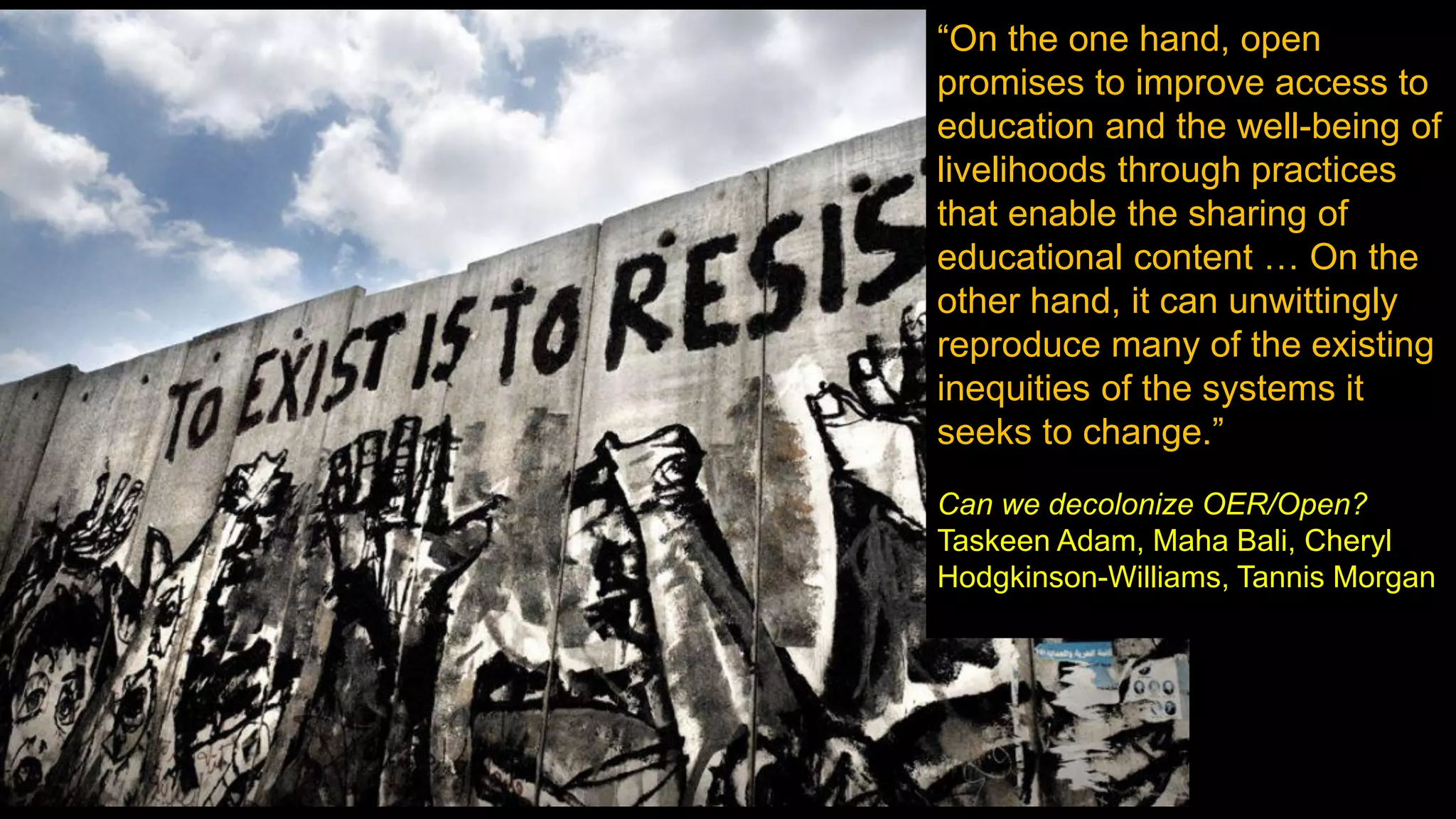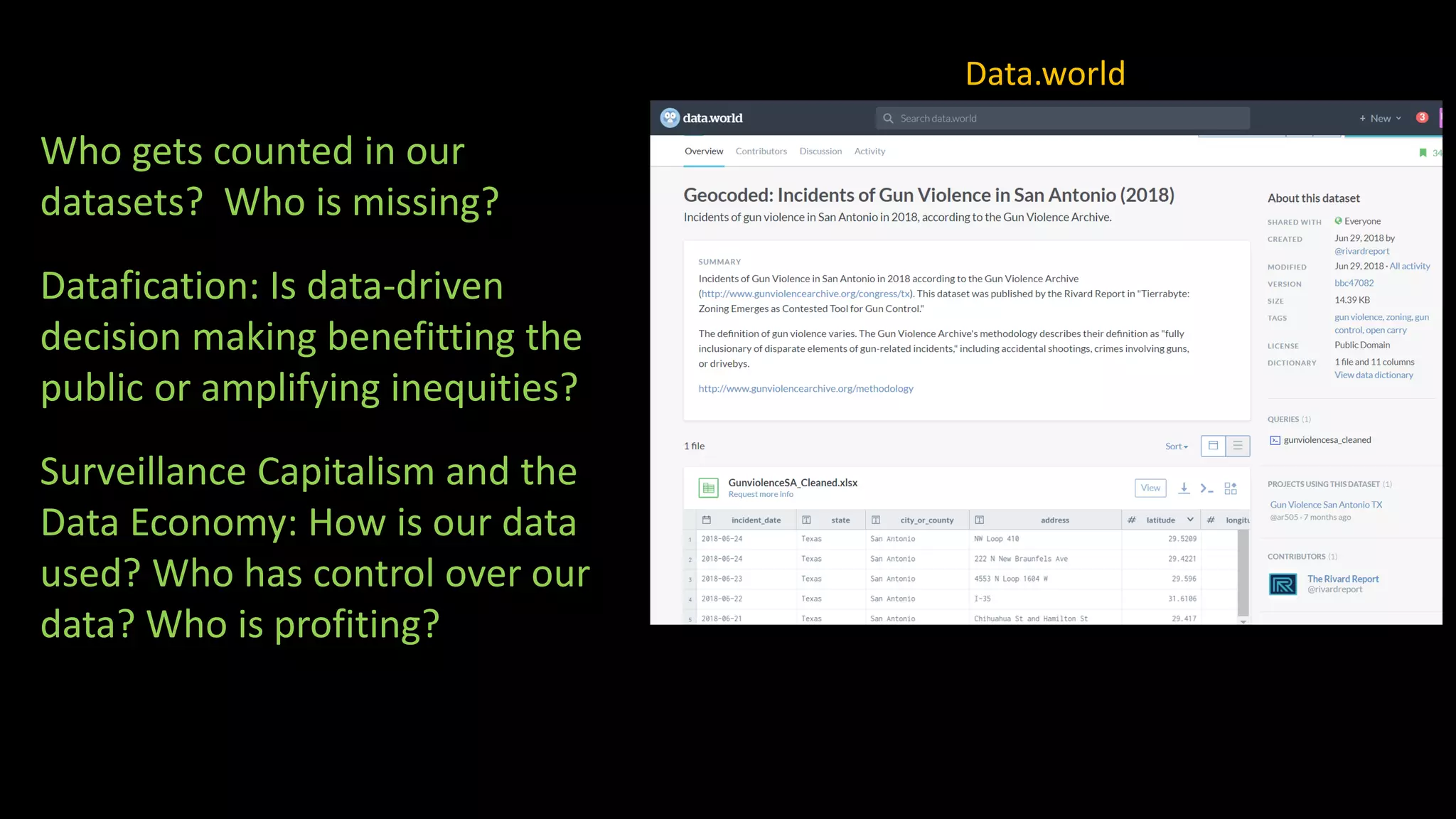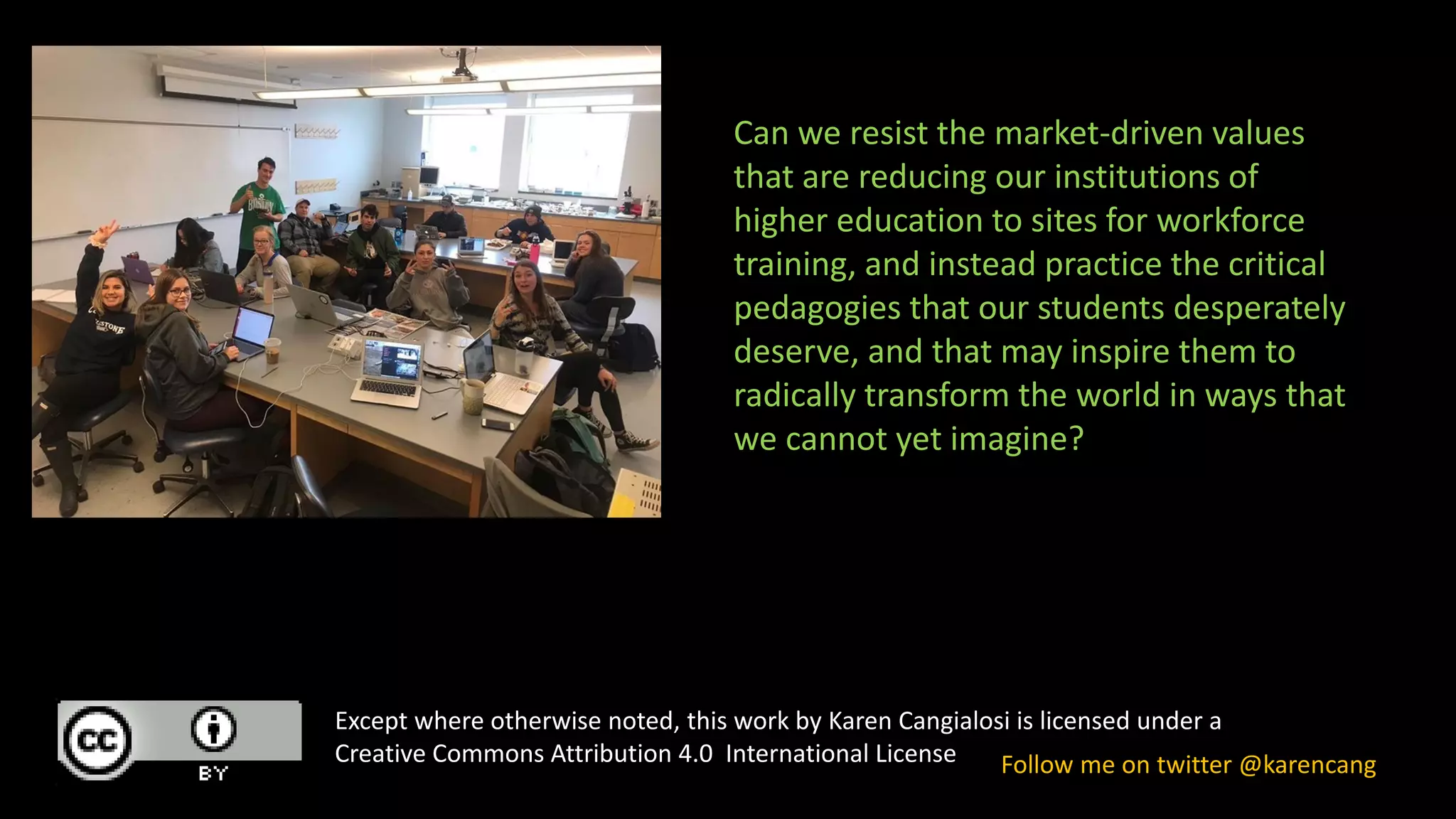This document discusses the open ecosystem of education and science. It defines key concepts like open educational resources (OER), open pedagogy, open science, and open access. It notes that using OER has led to cost savings for students and improved learning outcomes. Open pedagogy emphasizes student agency, collaboration, and knowledge creation rather than just consumption. The document advocates applying open principles throughout the education system and scientific process to make knowledge more accessible and collaborative.

![Open
Science
Open
Pedagogy
OER
Open Source
Software
Open Access
Publishing
Open Data
OPEN
EDUCATION
Open Ecosystem by Karen Cangialosi [CC BY 4.0]](https://image.slidesharecdn.com/qubesjuly2019v2-190713160540/75/Interconnections-in-the-Open-Ecosystem-2-2048.jpg)


![• In a study of 3,000 public college/university
students, HALF of the students left without a
degree, but with crippling debt.
• 23% of low-income sophomores worked a job
between the hours of 10:00pm and 8:00am.
• A year at a public university ranges from 16-
25% of a middle-class family’s annual income.
Modified from Slide by Robin DeRosa [CC BY 4.0]](https://image.slidesharecdn.com/qubesjuly2019v2-190713160540/75/Interconnections-in-the-Open-Ecosystem-5-2048.jpg)
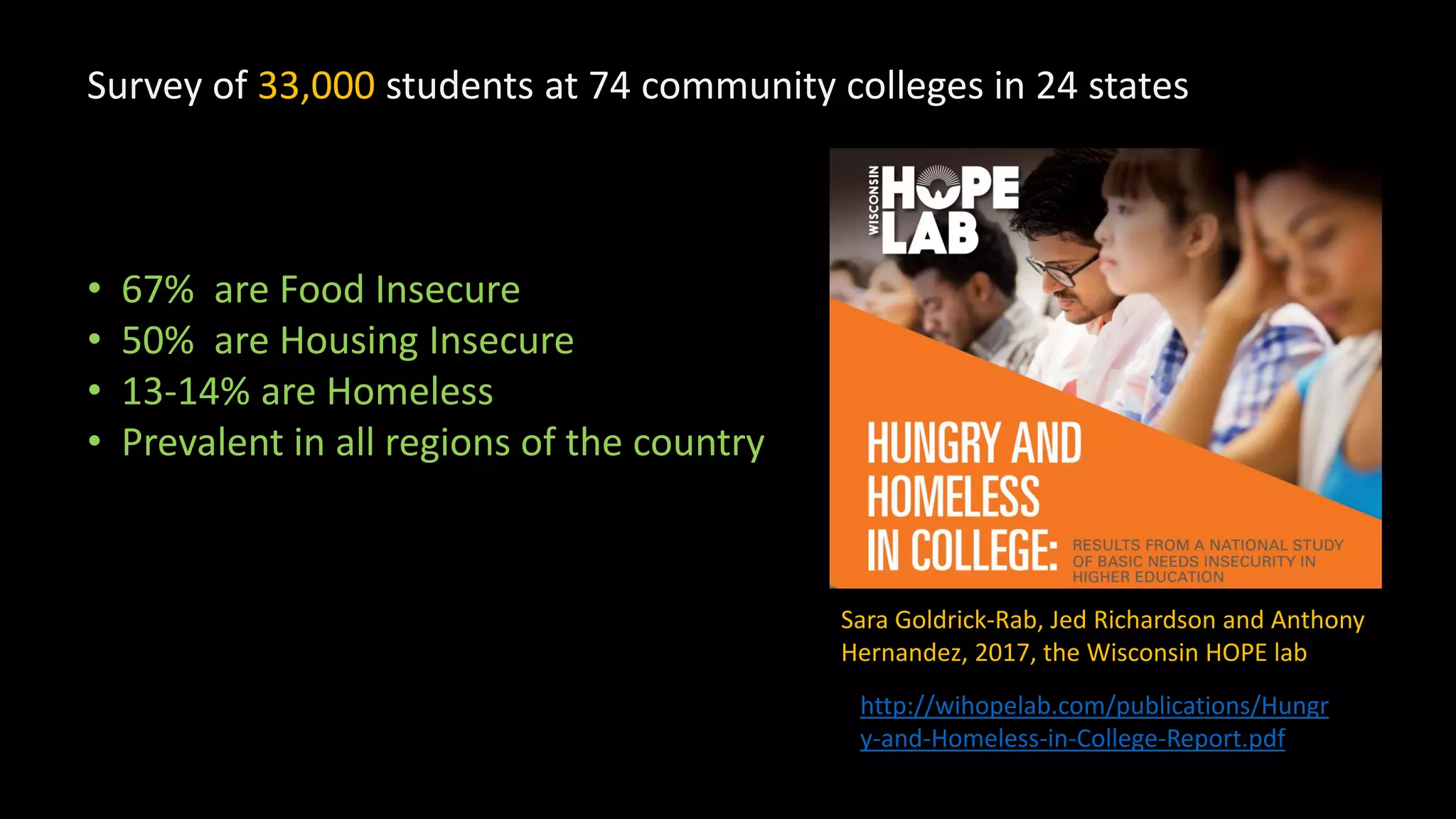

![Slide by Robin DeRosa [CC BY 4.0]
22,000 students in the study](https://image.slidesharecdn.com/qubesjuly2019v2-190713160540/75/Interconnections-in-the-Open-Ecosystem-8-2048.jpg)
![Open Educational Resources by Ron Mader [CC BY 2.0]
• Free
OER](https://image.slidesharecdn.com/qubesjuly2019v2-190713160540/75/Interconnections-in-the-Open-Ecosystem-9-2048.jpg)


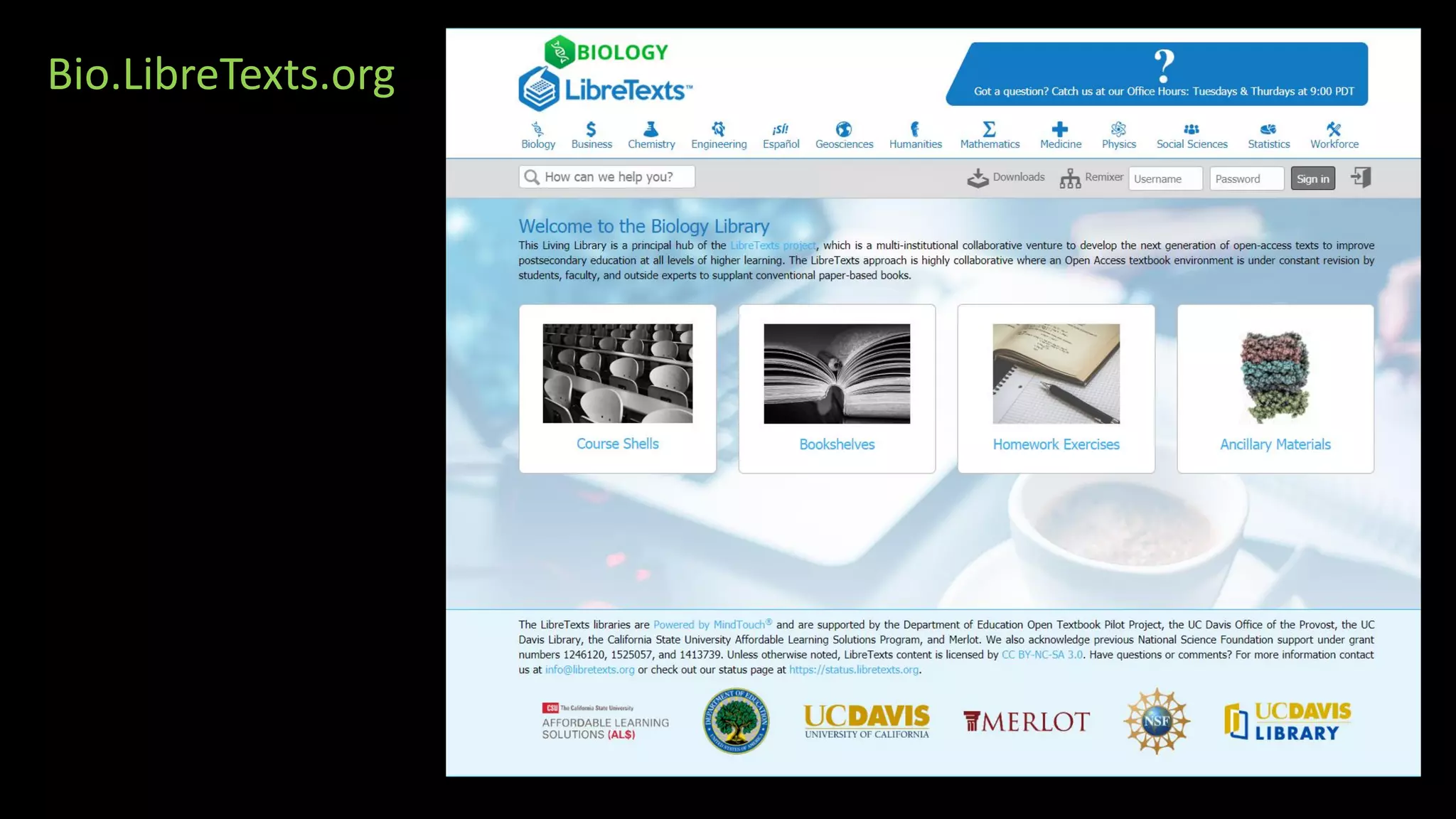
![The Many Flavors of OER
• “Traditional” OER as textbook (e.g.
OpenStax)
• Ancillary materials: test banks, etc.
• Curated links on websites
• Open Google Docs
• Open Videos
• Case studies
• Open Labs, simulations, animations
• Open Source software/tools
• Open Access published articles
• Open Datasets
• Open Lab notebooks, Methods
repositories
• and more…
Popsicles by Colored Pencil Magazine [CC BY 2.0]](https://image.slidesharecdn.com/qubesjuly2019v2-190713160540/75/Interconnections-in-the-Open-Ecosystem-13-2048.jpg)


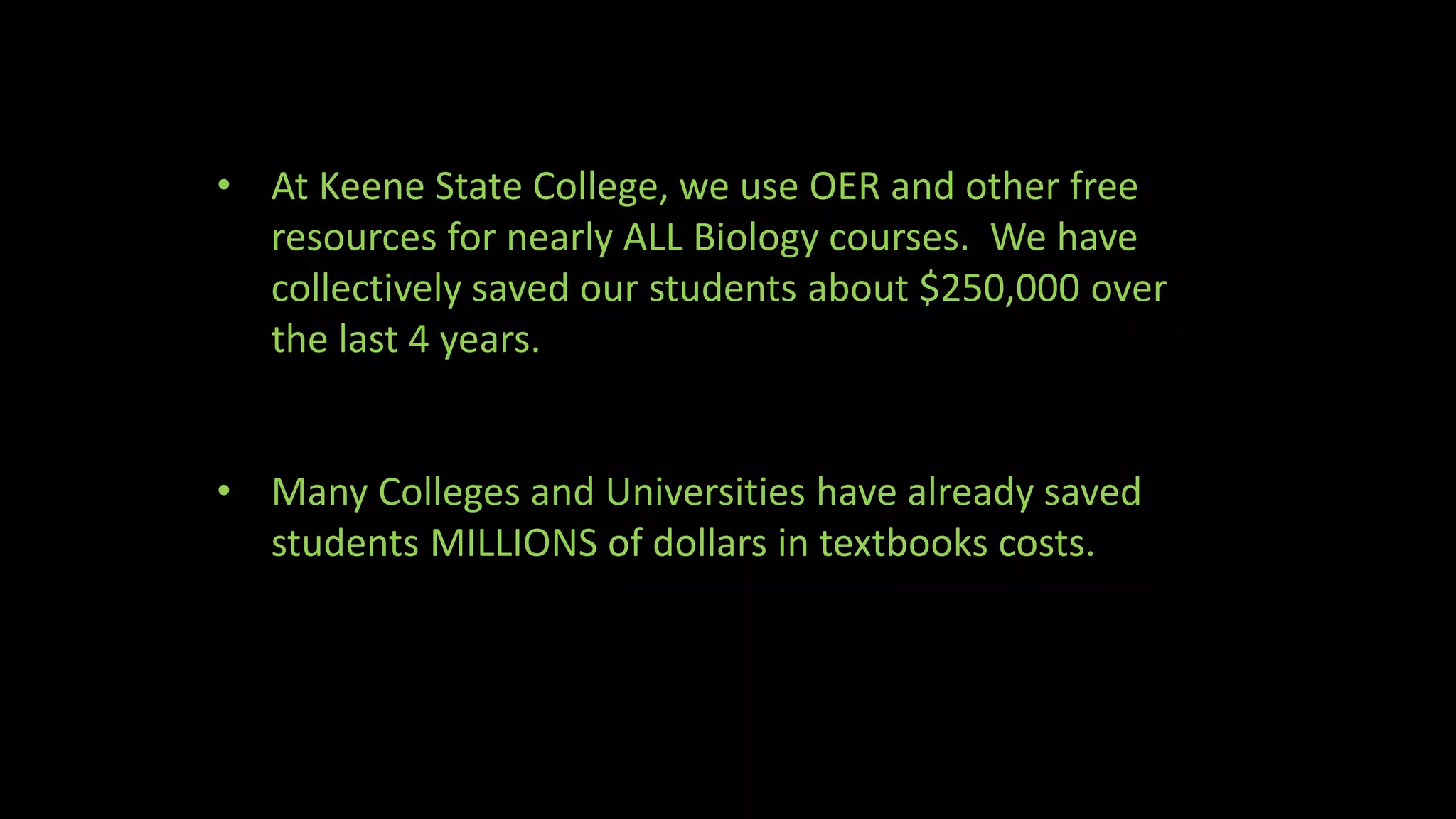
![Free as in “Free Beer”
Photo by Elliot Bledsoe [CC BY 2.0]](https://image.slidesharecdn.com/qubesjuly2019v2-190713160540/75/Interconnections-in-the-Open-Ecosystem-17-2048.jpg)
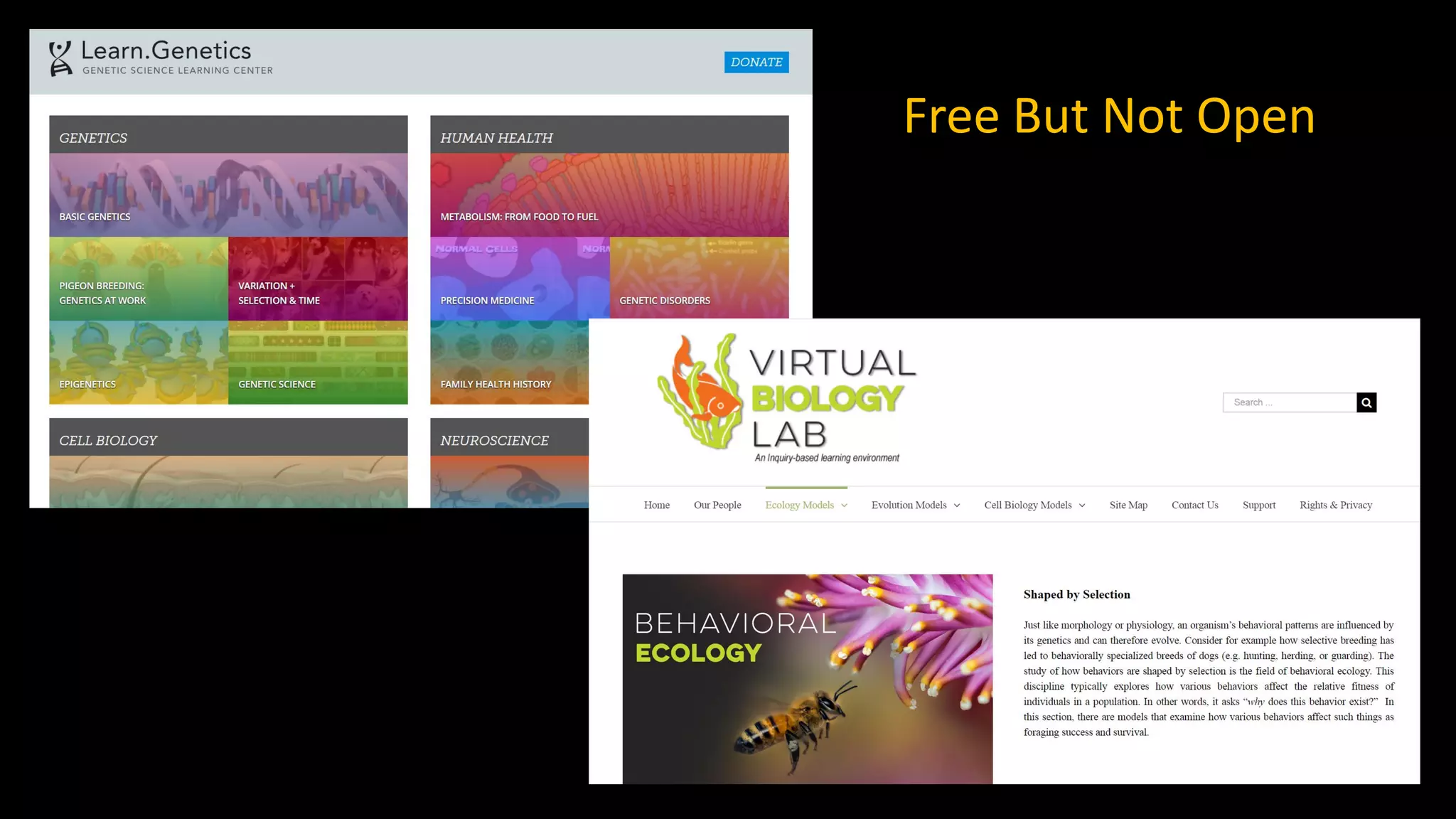



![Open Educational Resources by Ron Mader [CC BY 2.0]
• Digital
• Multimedia
• Downloadable
• Adaptable
• Current
• Public
• Openly Licensed
• Free
OER](https://image.slidesharecdn.com/qubesjuly2019v2-190713160540/75/Interconnections-in-the-Open-Ecosystem-22-2048.jpg)
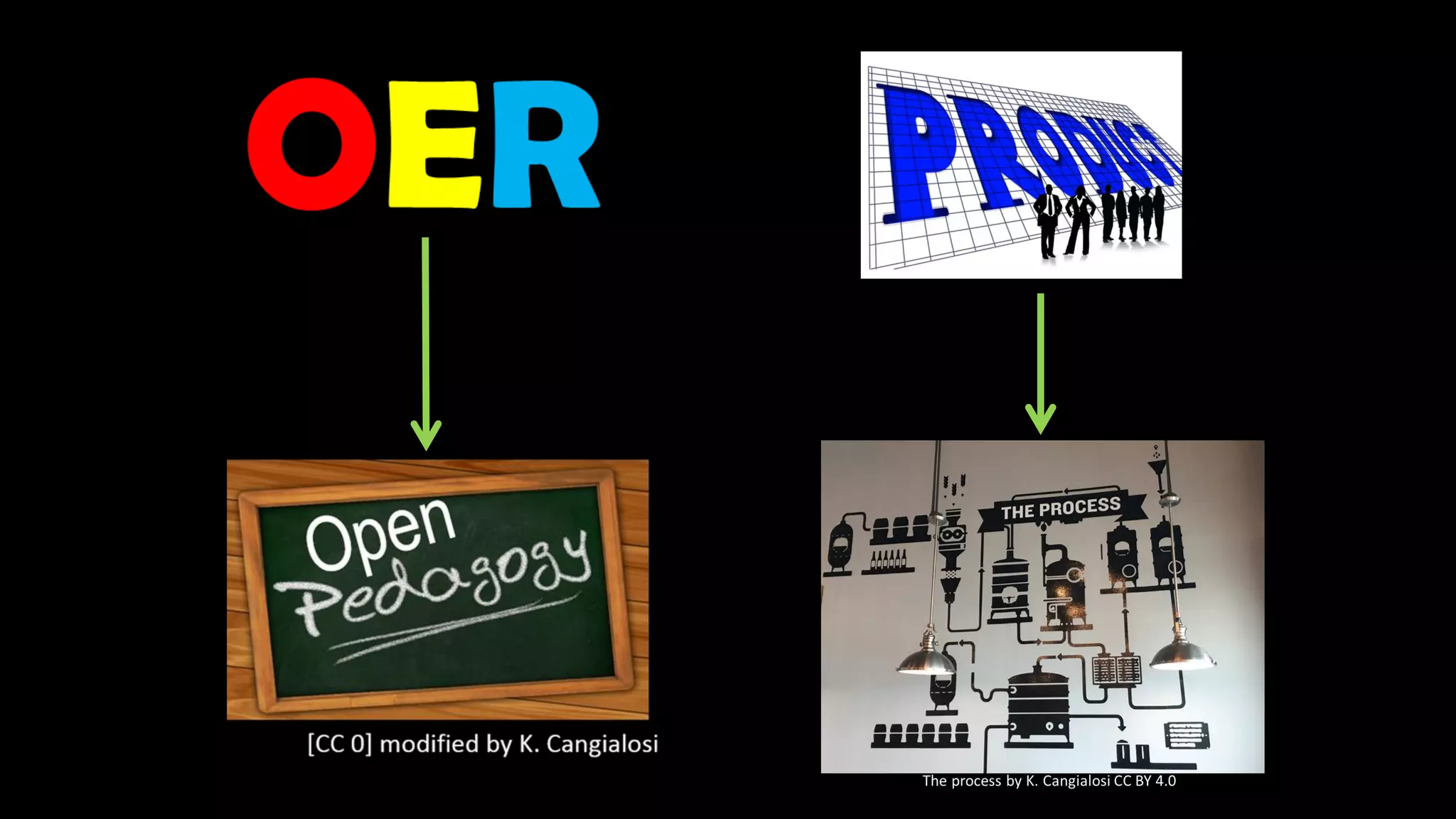
![Open Pedagogy
• Learners contribute to, not just
consume knowledge
• Community and collaboration
• Connection to the wider public
• Student Agency, Learner-driven
• Critical approach to the use of tools
and technology
‘Floor at domains17’ by Karen Cangialosi [CC BY 4.0]
Modified from content by Robin DeRosa](https://image.slidesharecdn.com/qubesjuly2019v2-190713160540/75/Interconnections-in-the-Open-Ecosystem-24-2048.jpg)

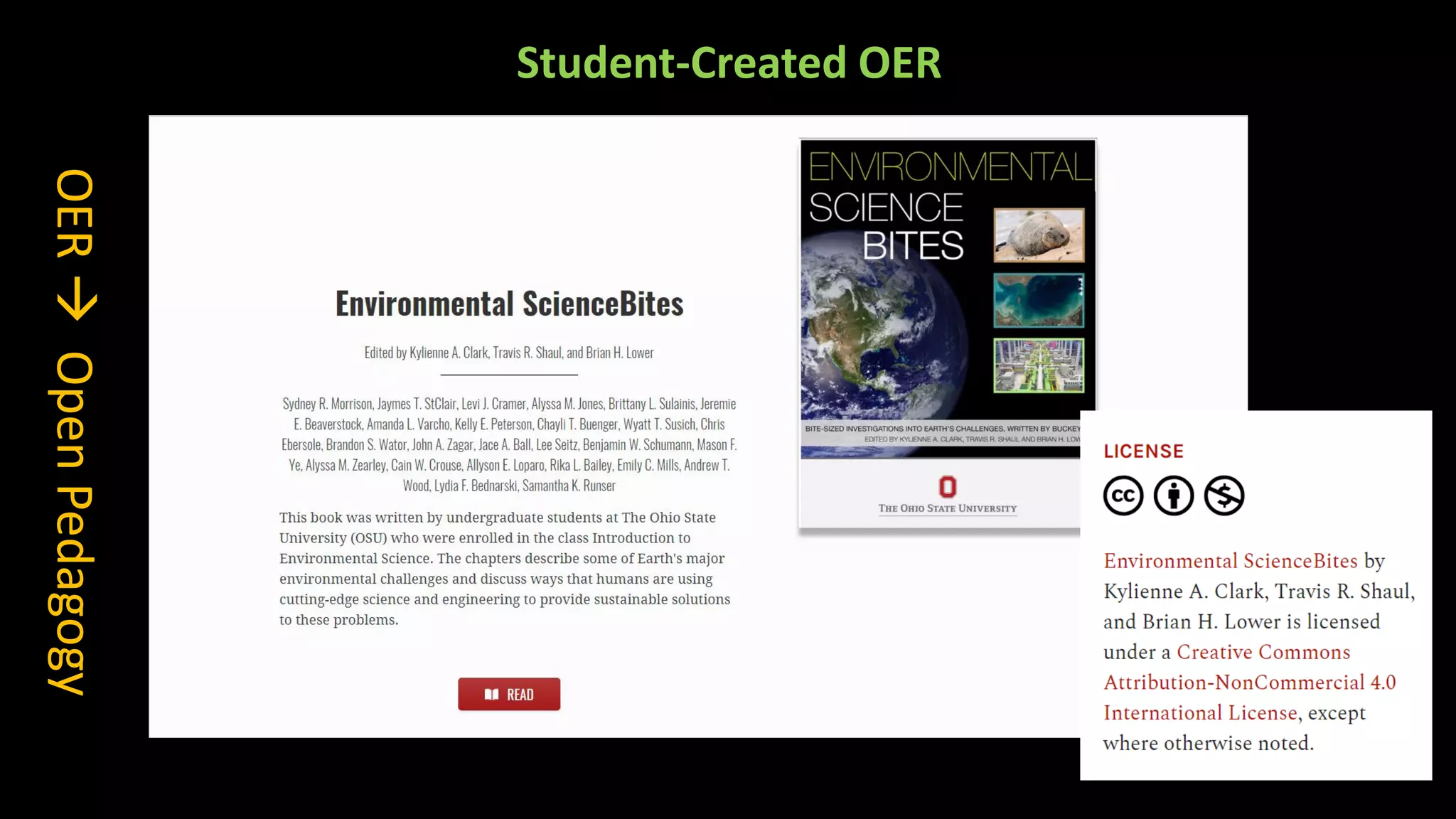


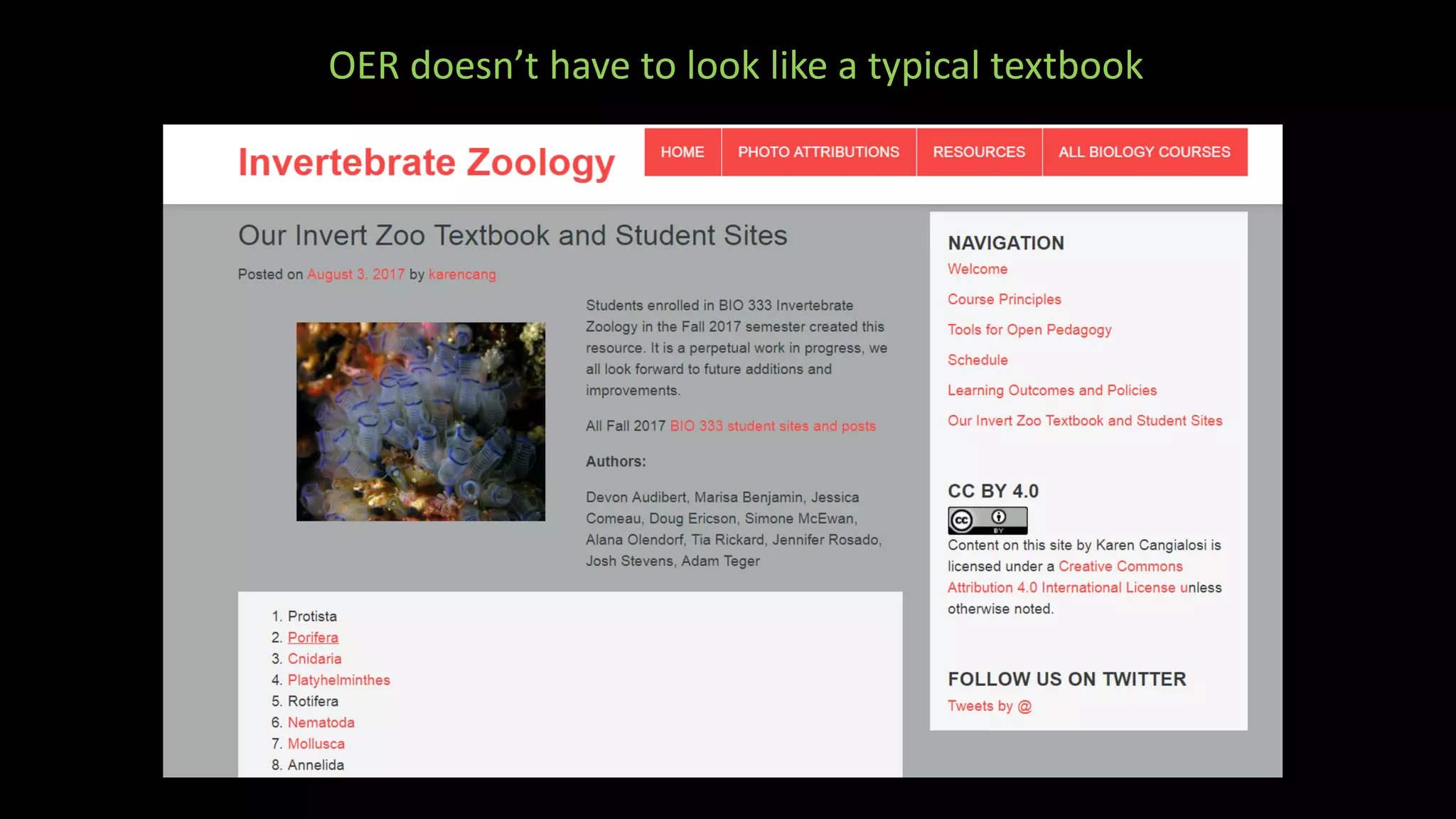
![Students can be involved in the production of any of this
• “Traditional” OER as textbook (e.g.
OpenStax)
• Ancillary materials: test banks, etc.
• Curated links on websites
• Open Google Docs
• Open Videos
• Case studies
• Open Labs, simulations, animations
• Open Source software/tools
• Open Access published articles
• Open Datasets
• Open Lab notebooks, Methods
repositories
• and more… Popsicles by Colored Pencil Magazine [CC BY 2.0]](https://image.slidesharecdn.com/qubesjuly2019v2-190713160540/75/Interconnections-in-the-Open-Ecosystem-30-2048.jpg)
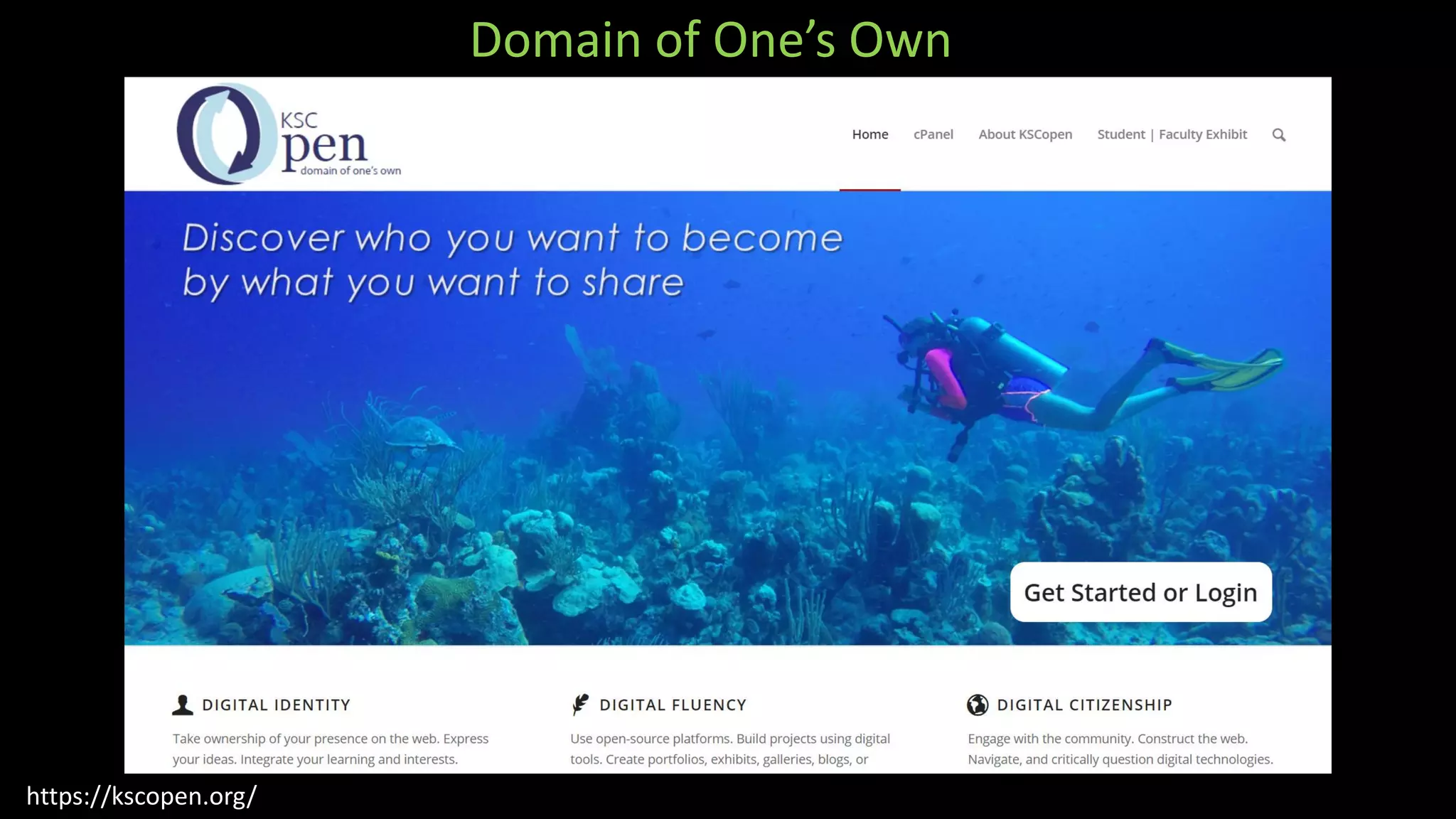
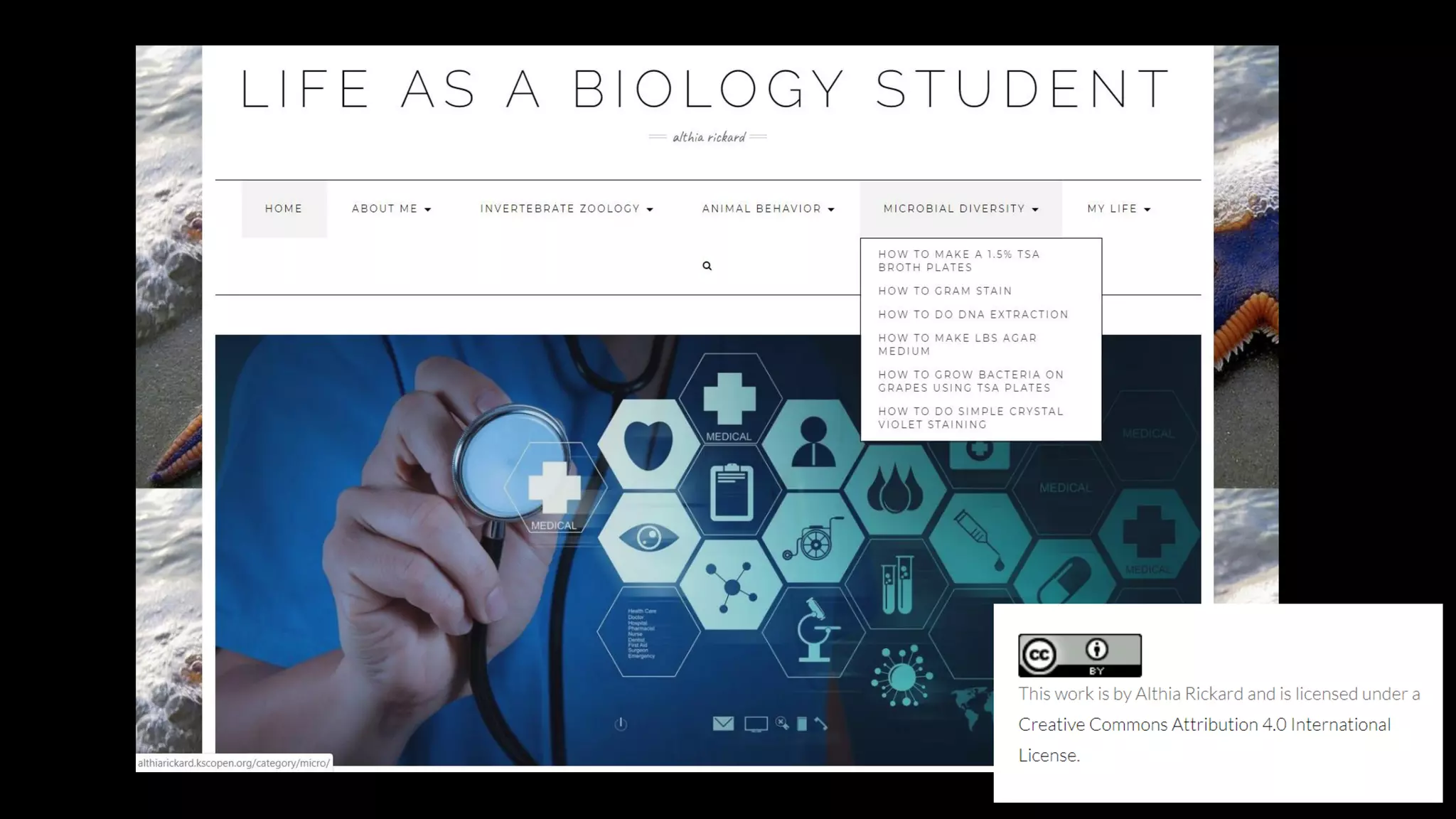

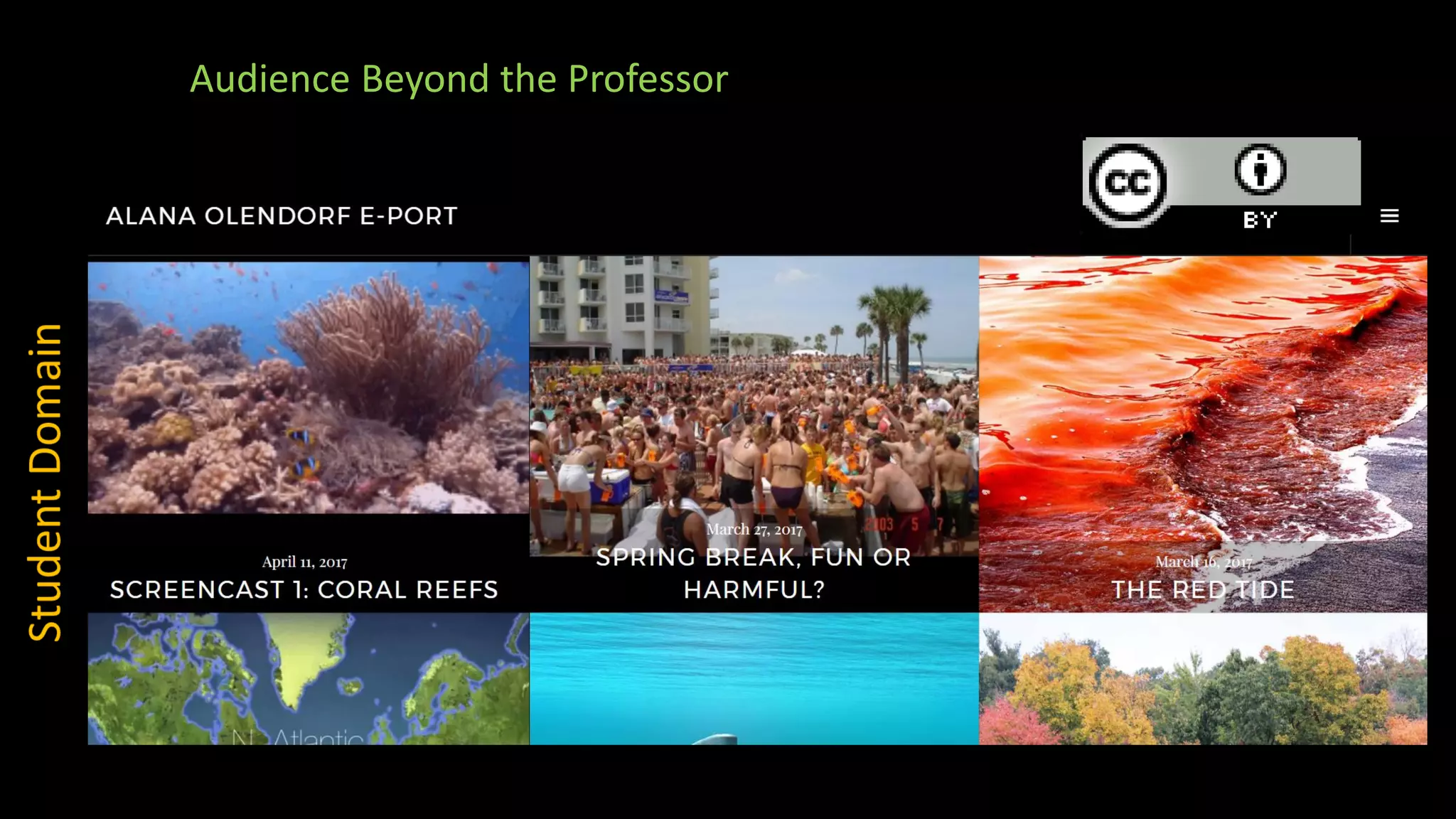

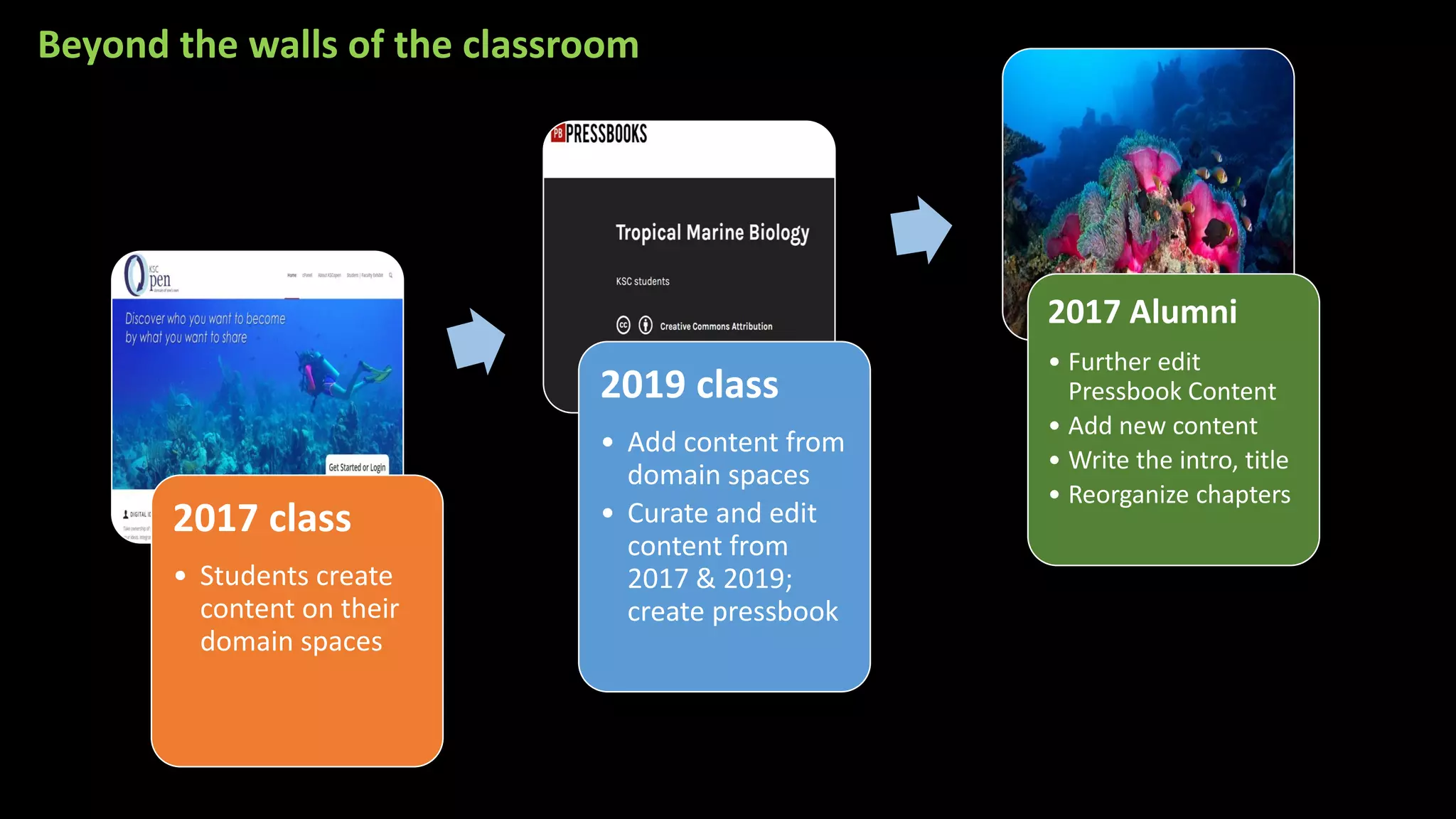


![Wiki Education Foundation (wikiedu.org)
[CC BY SA]
Creating/Editing Wikipedia Articles](https://image.slidesharecdn.com/qubesjuly2019v2-190713160540/75/Interconnections-in-the-Open-Ecosystem-39-2048.jpg)

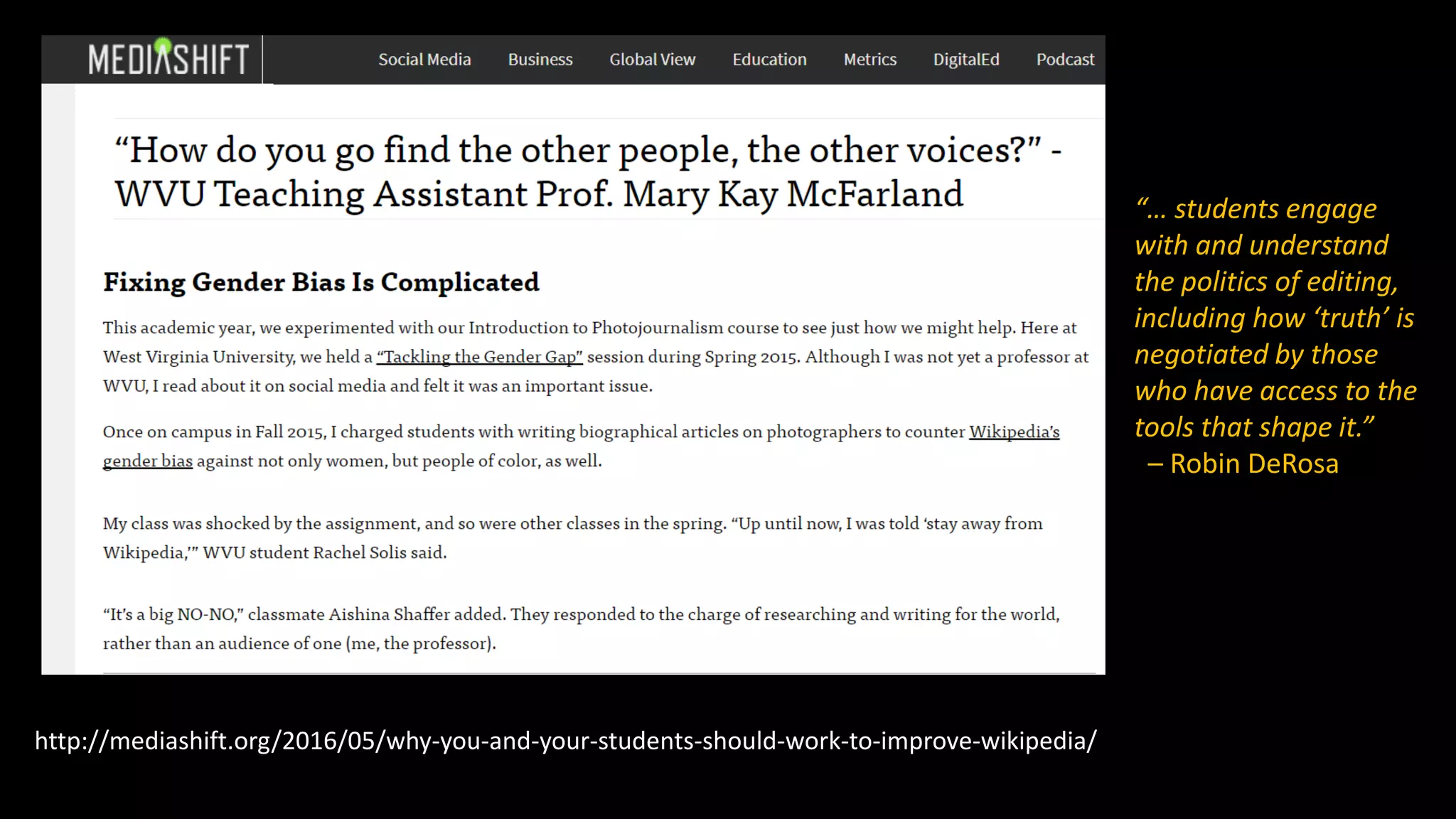
![“Our students
are not just
going on the
web, they are
constructing it.”
-Martha Burtis
"This is How The Web is Made“ by cogdogblog
https://flickr.com/photos/cogdog/16248316055
[CC BY 2.0]](https://image.slidesharecdn.com/qubesjuly2019v2-190713160540/75/Interconnections-in-the-Open-Ecosystem-42-2048.jpg)

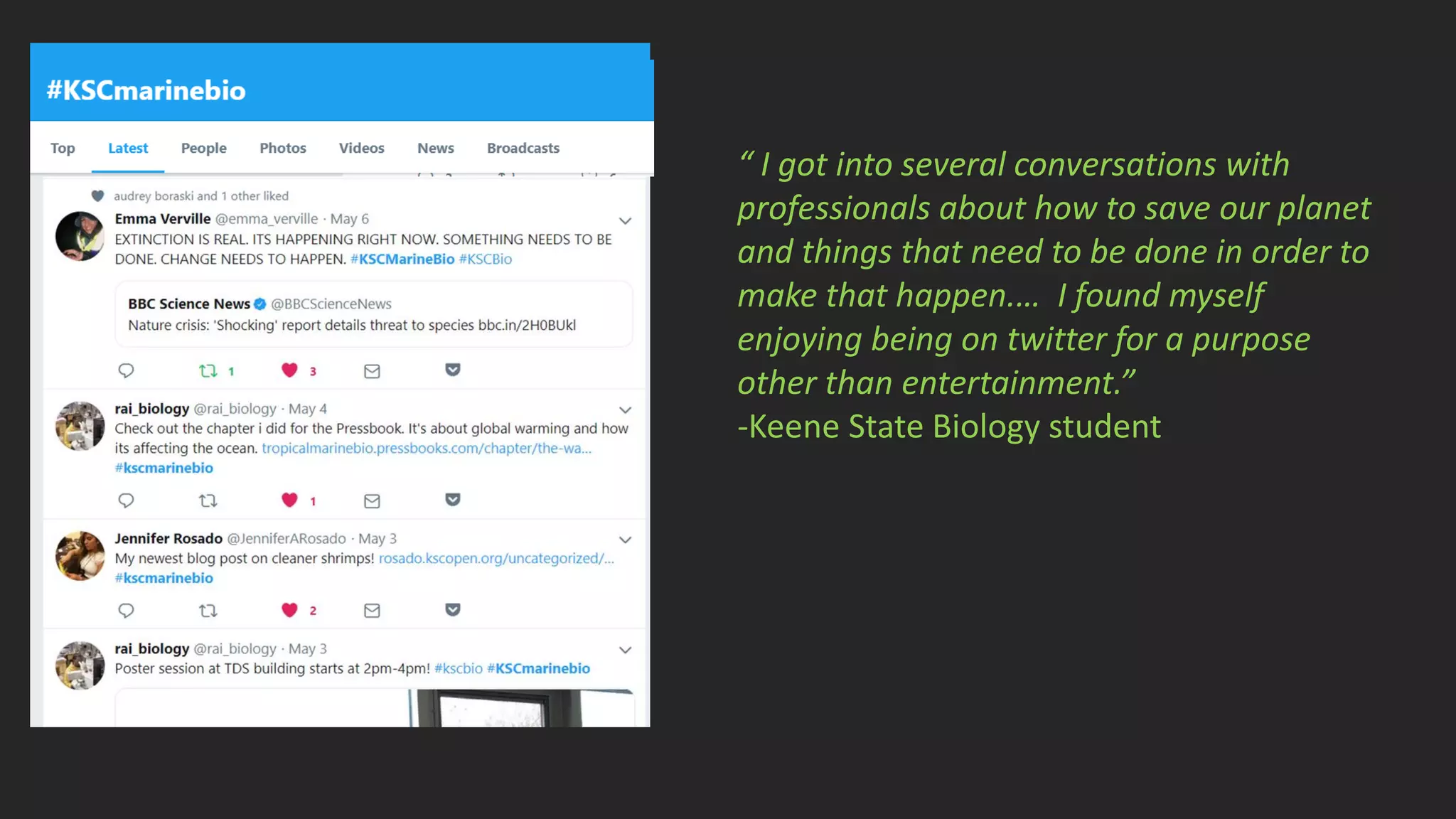

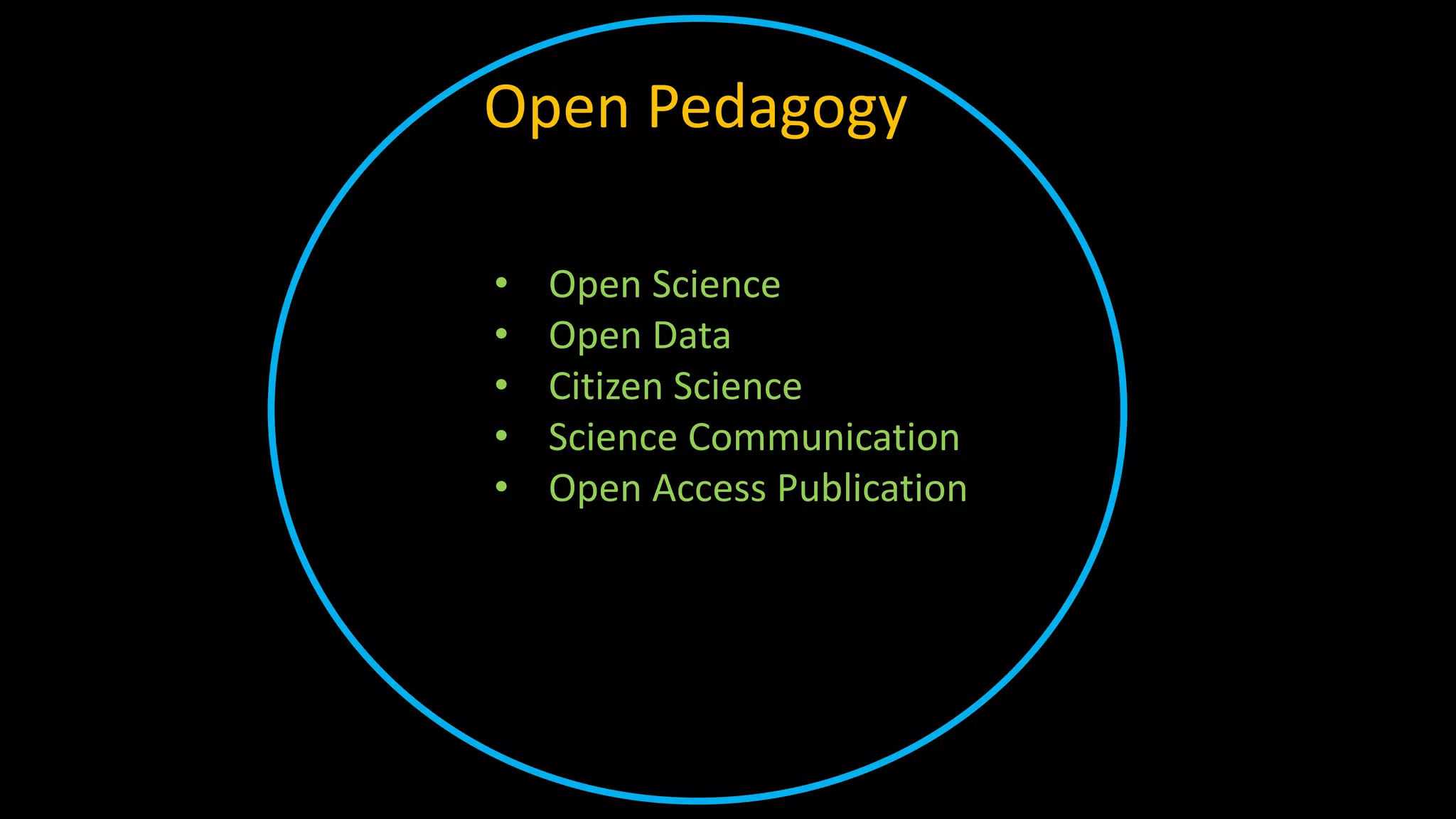

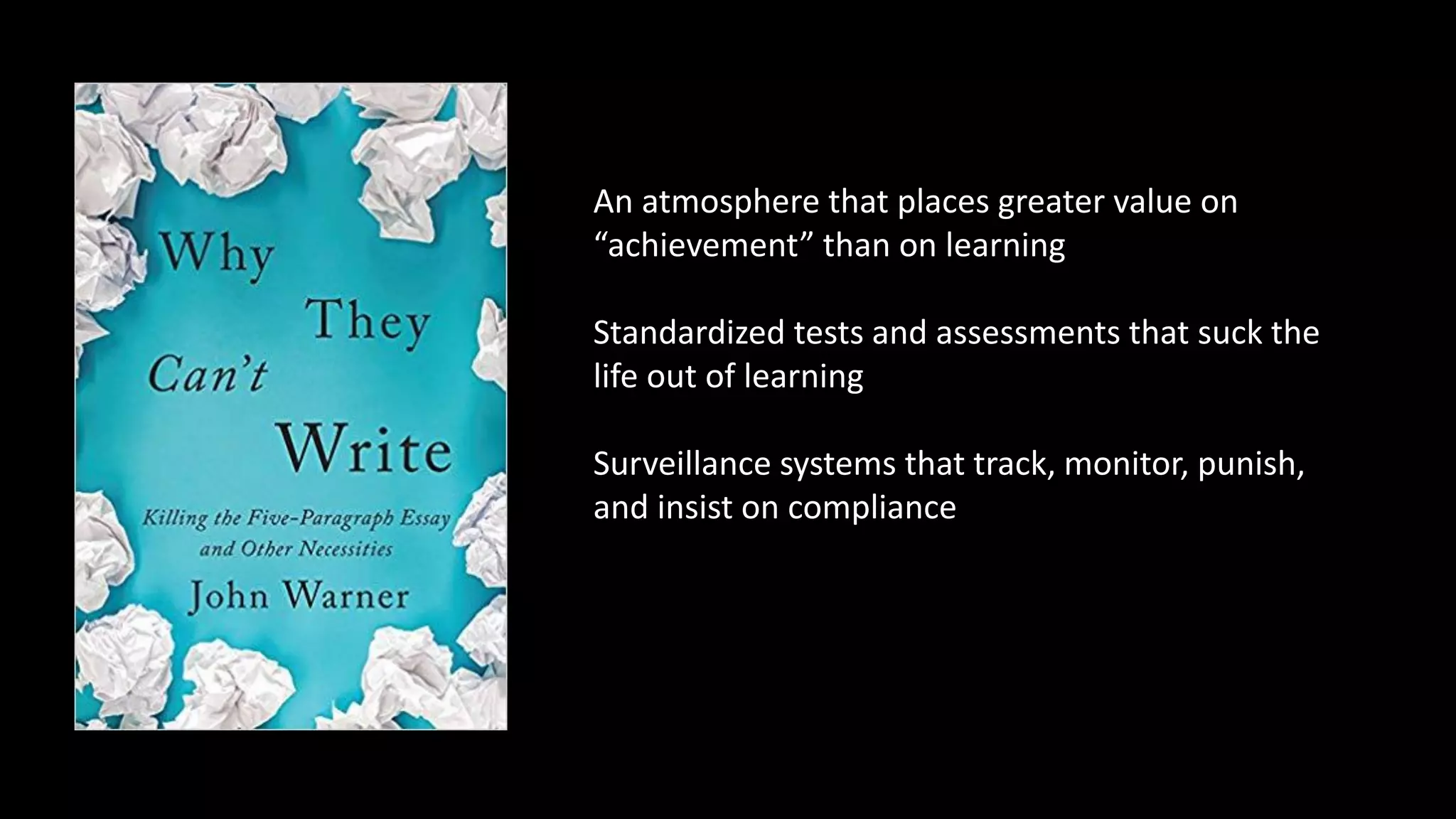


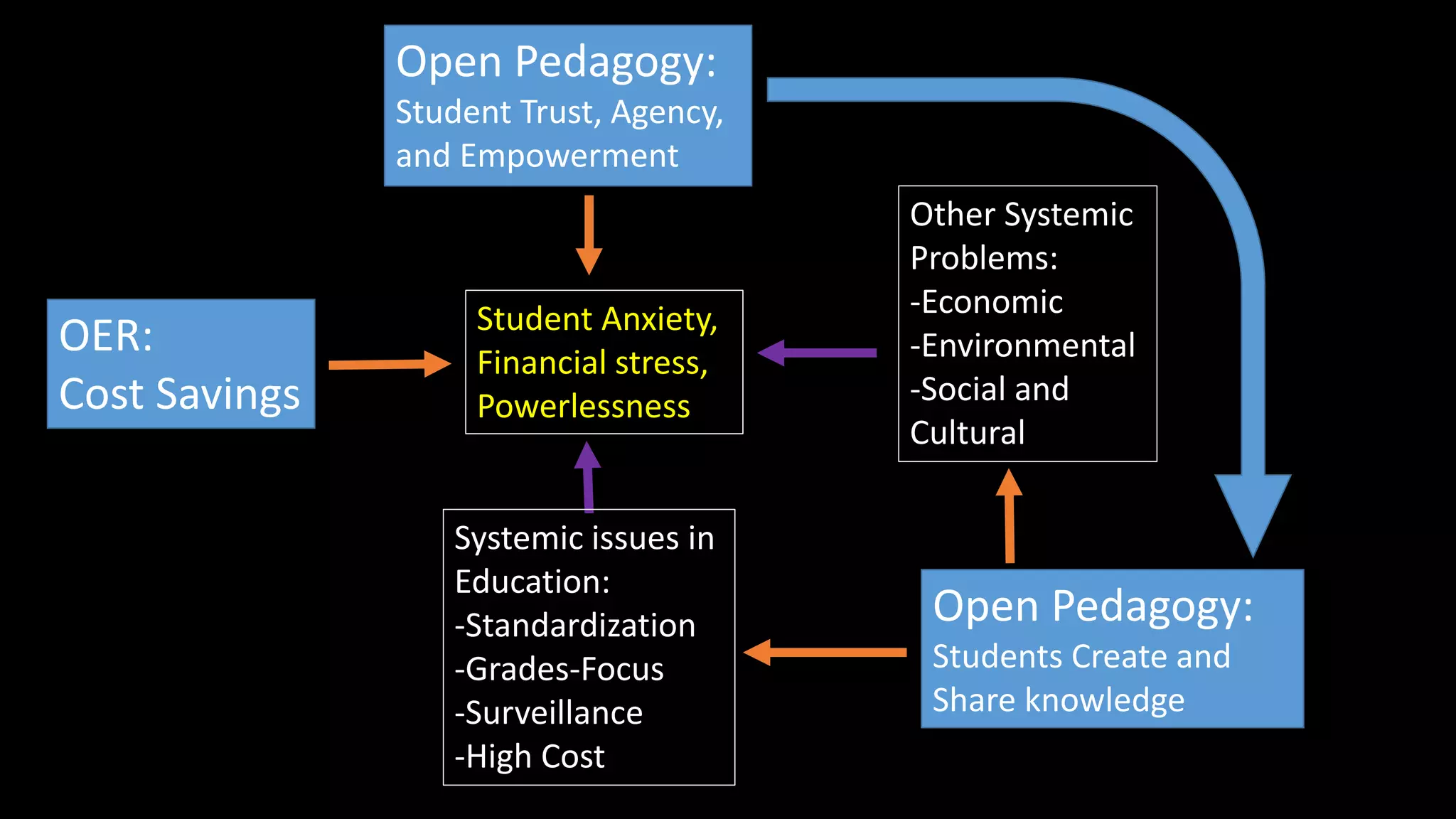

![The Pedagogy of Open Science
Open Pedagogy in Science
By G.emmerich [CC BY-SA 3.0]
= teaching students the value and
practices of opening up scientific work
= using Open Pedagogy practices in
STEM courses](https://image.slidesharecdn.com/qubesjuly2019v2-190713160540/75/Interconnections-in-the-Open-Ecosystem-53-2048.jpg)
![By G.emmerich [CC BY-SA 3.0]
• Transparency in experimental methodology,
observation, and collection of data
• Public availability and reusability of
scientific data
• Public accessibility and transparency of
scientific communication
• Using web-based tools to facilitate scientific
collaboration
From What, exactly, is Open Science?
Posted on July 28, 2009 by Dan Gezelter
A Global Scientific Revolution](https://image.slidesharecdn.com/qubesjuly2019v2-190713160540/75/Interconnections-in-the-Open-Ecosystem-54-2048.jpg)

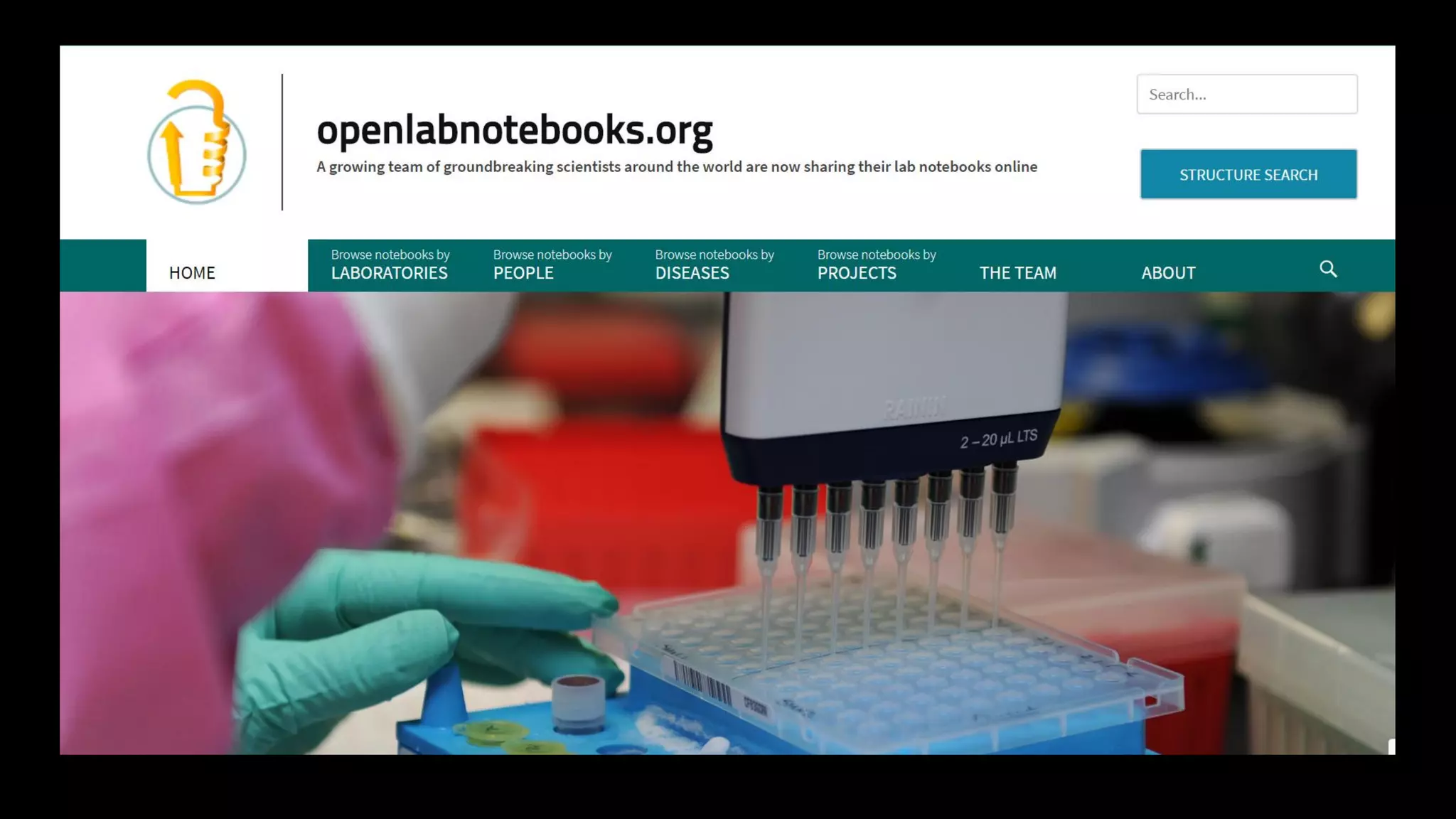





![Open
Data
Open
Science
Open
Access
Publishing
OER
Open
Pedagogy
Open
Source
Software
Energy Flow and Nutrient Cycling in The Open Ecosystem
By Karen Cangialosi [CC BY 4.0]
(modified from Chesapeake Bay
Waterbird Food Web CC 0)](https://image.slidesharecdn.com/qubesjuly2019v2-190713160540/75/Interconnections-in-the-Open-Ecosystem-62-2048.jpg)

